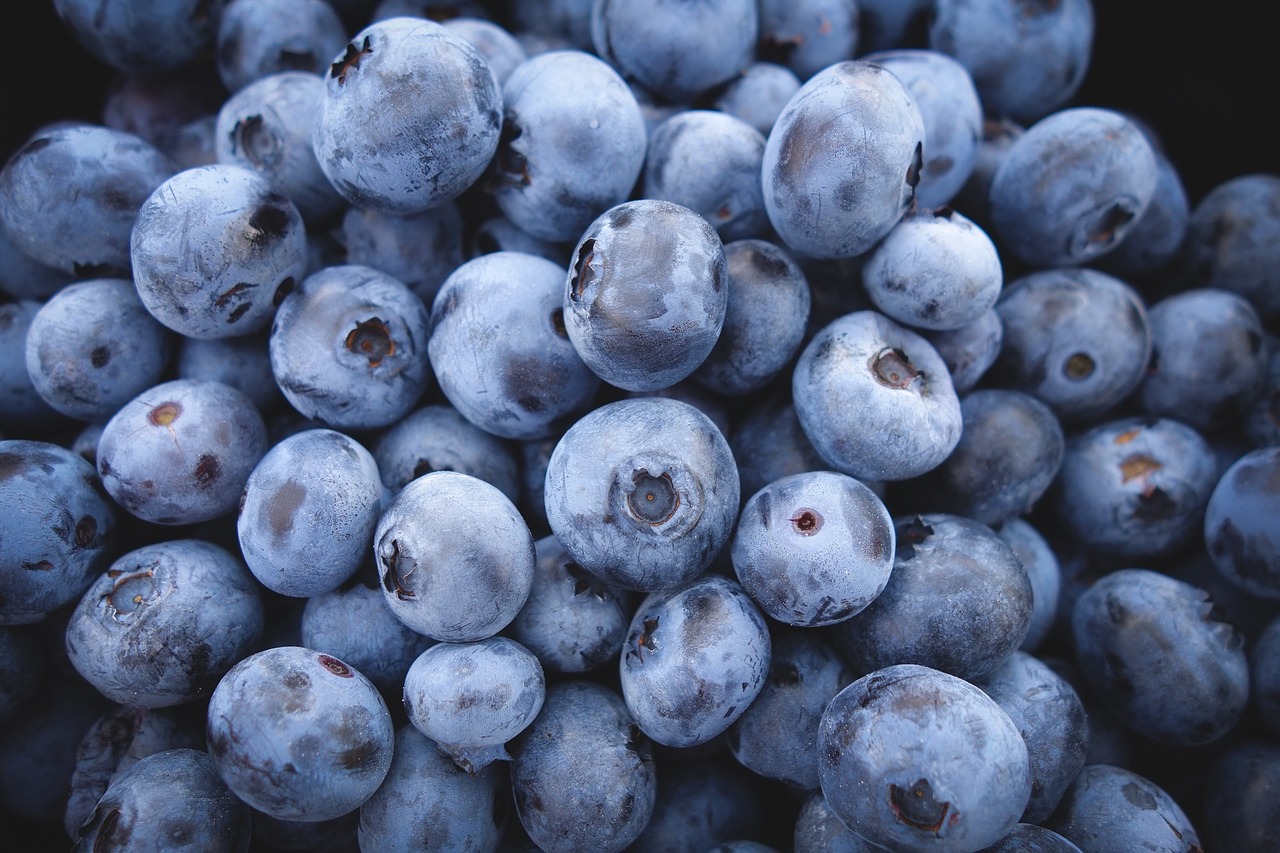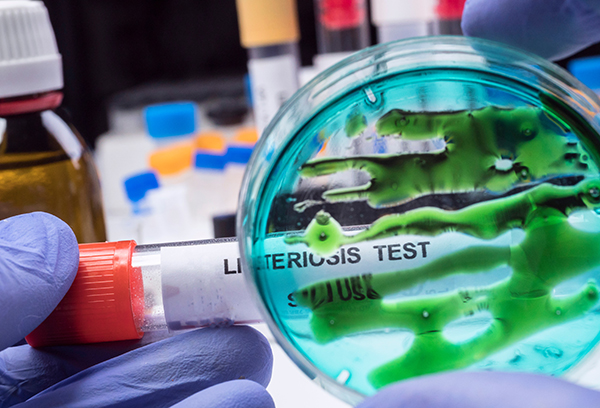The mighty BLUEBERRY, a superfruit with anticancer properties
04/22/2024 / By Olivia Cook

In a study published in Pathology Oncology Research, academic pathologist Dr. Yujiang Fang and a team of University of Missouri researchers found that blueberry fruit extracts can greatly improve the effectiveness of radiation therapy on cancer cells.
Long known for their antioxidant properties, blueberries have exhibited “inherent abilities to prevent carcinogenesis, inhibit the proliferation of neoplastic cells, and reduce the risk of recurrence in patients in remission.”
The study noted that when the researchers reduced the dosage of radiation, the killing effect of blueberry phytochemicals on cancer was even enhanced. “That is because a chemical in the fruit called resveratrol acts as a radiosensitizer,” explained Fang.
He added that as a radiosensitizer, resveratrol “suppresses initiation, promotion and progression of carcinogenesis while reducing the expression of vascular endothelial growth, as well as promoting nitric oxide synthase (NOS) activity” – improves cardiac health and healing processes and respiratory response; enhances performance during exercise; and reduces high blood pressure during pregnancy, as well as erectile dysfunction. This also means that even with less radiation, doctors can reduce the side effects of chemotherapy on healthy cells.
Using cervical cancer cells in the lab, the researchers found that radiation reduced the number of cancer cells by 20 percent, while over the same period, blueberry extract decreased the number of cancer cells by 25 percent. The synergistic effect of both radiation and blueberry extract decreased the number of cancer cells by a whopping 70 percent – and additionally reduced the growth of new cancer cells. (Related: Blueberries are more effective at killing cancer than radiotherapy.)
Blueberries: a small but mighty superfood
An earlier study published in the Journal of Zhejiang University SCIENCE B found blueberries to have the strongest natural total antioxidant capacity (TAC) and the highest total phenolic content (TPC), total flavonoid content (TFC) and total anthocyanidin content (TAC) values when compared with blackberries and strawberries.
These superfruits are a formidable line of defense against cancer – loaded with bioactive compounds, some of which have demonstrated the capacity to halt cancer cell proliferation and increase cell death or apoptosis.
Extracts from these superfoods contain important nutrients, such as fiber, vitamin C and manganese, and bioactive compounds that have been scientifically proven to offer a lot of health benefits, such as:
- A wide range of phenolic acids – e.g., caffeic acid, cinnamic acid, ellagic acid, ferulic acid, gallic acid, p-coumaric acid, p-hydroxybenzoic acid, protocatechuic acid and vanillic acid – that act as precursors of significant bioactive molecules.
- Various types of flavonoids that exhibit antioxidant, antimicrobial, anti-allergic, anti-inflammatory, anti-tumor, cardioprotective and neuroprotective activity – flavones: (luteolin); flavonols ( myricetin, quercetin and rutin); flavanols (catechin, catechin gallate, epigallocatechin and gallocatechin); and over 500 different types of anthocyanidins (cyanidin, malvidin-3-galactoside and malvidin-3-glucoside).
Studies show that when you eat blueberries every day, you can enjoy the following health benefits:
Improves cognitive function
Numerous research have associated the flavonoids in blueberries with improved learning and general cognitive function and memory, including decision-making, numerical ability, reasoning skills and verbal comprehension.
Supports gut health
A study published in Molecular Nutrition & Food Research found that blueberries can support gut health by improving intestinal morphology (the main indicator of intestinal development, functionality and health); modulating the composition and function of gut microbes; reducing gut permeability; remediating gut inflammation; and suppressing oxidative stress.
Supports eye health
Blueberries are rich in antioxidants, particularly anthocyanins, as well as vitamins C and E, that are known to protect eyesight and slow the progression of macular degeneration and retinitis pigmentosa.
Enhances skin health
The vitamin C in blueberries, paired with anthocyanins, supports collagen production and skin elasticity and protects your skin from free radical damage, reducing signs of aging.
Assists in muscle recovery
According to physiotherapist and top trainer Jeff Cavaliere, vitamin C, potassium and flavonoids like the anthocyanins in blueberries can enhance blood flow and reduce muscle inflammation, especially after a particularly intense workout. Blueberries also contain complex carbohydrates, which can help your body quickly replenish its energy levels and mend any microdamage done by heavy exercise to your muscles.
Helps manage diabetes
A study published in the Journal of Nutrition found that the bioactive compounds in blueberries can improve insulin sensitivity in insulin-resistant and obese men and women. Blueberries are notably high in fiber, low in carbohydrates and lower in sugar than other types of fruit.
Research also suggests that blueberries can help your body process glucose more efficiently by helping improve your insulin sensitivity. Doing so helps you keep your blood sugar levels under control.
Strengthens bones
Blueberries are loaded with vitamins and minerals that aid in maintaining bone strength, such as calcium, iron, magnesium, manganese, phosphorus, zinc and vitamin K. A study published in Antioxidants found that blueberries increase the proliferation of human bone marrow cells that are responsible for bone formation.
A study published in Molecular Nutrition & Food Research also suggests that increased doses of blueberry polyphenols could induce changes in the intestinal phenolic metabolism and increase calcium absorption in your bones – the main storage site of calcium, which helps your cells, muscles and nerves function normally.
Visit SuperFoods.news for more stories like this.
Explore the 10 benefits of blueberries by watching the following video.
This video is from the All About Herbs channel on Brighteon.com.
More related stories:
Blueberries are bursting with various antioxidants that reduce the risk of dementia.
Blueberries control high cholesterol and prevent colon cancer.
Blueberries improve memory, slow aging and much more.
Sources include:
Submit a correction >>
Tagged Under:
anthocyanins, anticancer, antioxidants, blood sugar, Blueberries, brain health boost, digestion, eye health, food cures, food is medicine, food science, fruits, gut health, health science, natural cures, natural medicine, Oncology, phytonutrients, research, superfruit
This article may contain statements that reflect the opinion of the author
RECENT NEWS & ARTICLES
COPYRIGHT © 2017 FRUITS NEWS



















